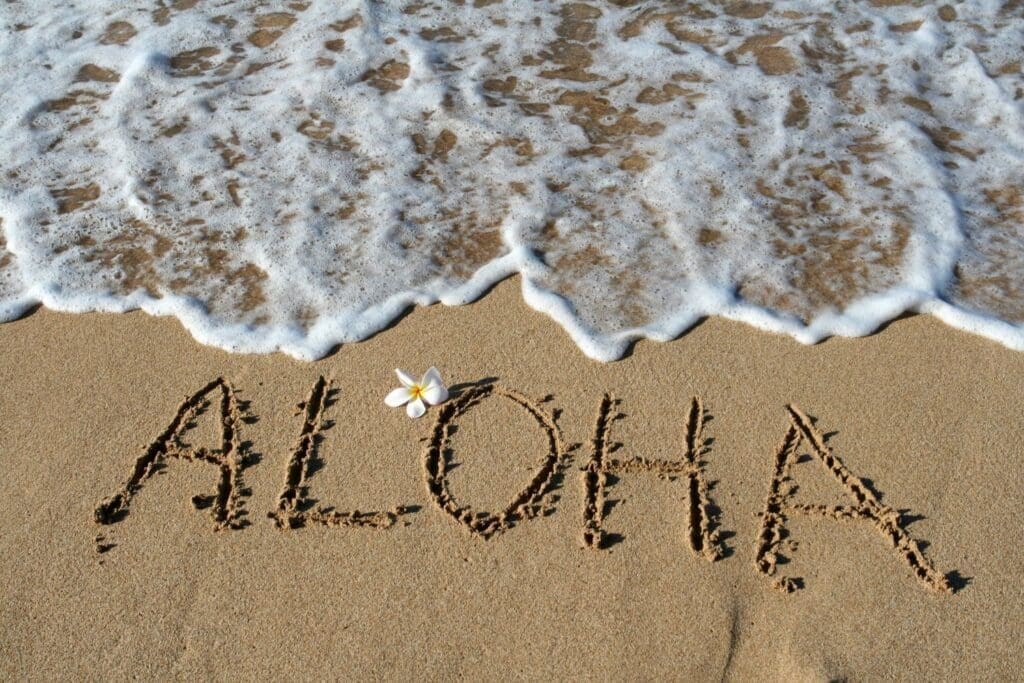15 Basic Hawaiian Words and Phrases Before you Travel to Hawaii
Nestled in the heart of the Pacific Ocean, the Hawaiian Islands are not just renowned for their breathtaking landscapes and vibrant culture but also for their unique and melodious language. Hawaiian, with its soft vowels and gentle rhythm, offers a window into the rich heritage and aloha spirit of Hawaii’s native people. Before English dominance, this language flourished among the islands, integral to storytelling, traditions, and daily life. Despite facing near extinction, efforts in the late 20th century have revitalized Hawaiian, making it a living symbol of resilience and pride.

The Hawaiian language is known for its relatively small phonetic inventory but vast expressive potential. It features only eight consonants and five vowels, yet its capacity to convey complex emotions and concepts through simple words and phrases is unparalleled. Interestingly, Hawaiian is an official language of the state of Hawaii, a testament to its enduring significance.
For those enchanted by the islands’ allure, learning Hawaiian can deepen your connection to its culture and people. Whether you’re planning a visit or simply wish to explore from afar, mastering a few basic words and phrases can open doors to heartwarming interactions.
15 essential Hawaiian words and phrases to get you started
Aloha (ah-LO-ha): More than just a greeting, “Aloha” embodies love, peace, and compassion. Use it to say hello, goodbye, and to express affection.

Mahalo (ma-HA-lo): “Thank you.” A fundamental expression of gratitude, use it to show appreciation.
ʻOhana (o-HA-na): “Family.” Central to Hawaiian culture, it signifies the importance of familial bonds and community.
Kai (kai): “Sea.” Given the islands’ deep connection with the ocean, this word is often heard in conversations about the beach or marine life.
Mana (MA-na): “Power” or “spiritual energy.” This term is used to describe a presence of spiritual force or influence.
Pono (PO-no): “Righteousness.” It conveys a sense of balance, correctness, and integrity in one’s actions.
Kuleana (koo-LE-a-na): “Responsibility.” It emphasizes the importance of personal and communal duty.
Haole (HA-o-le): A term originally meaning “foreigner,” now often used to describe anyone not native to Hawaii. It’s crucial to use this word respectfully and understand its complex history.
Kokua (ko-KU-a): “Help” or “support.” Use this to offer or ask for assistance.
Lanai (la-NAI): “Porch” or “veranda.” A common feature in Hawaiian homes, offering a space for relaxation and socializing.
Malama (ma-LA-ma): “To care for.” It reflects the Hawaiian ethos of looking after the land, sea, and each other.
Kamaʻaina (ka-ma-AI-na): “Local” or “native resident.” It acknowledges someone deeply connected to the islands through long-term residence.
A hui hou (a HUI hou): “Until we meet again.” A heartfelt way of saying goodbye, with the promise of reunion.
Ono (O-no): “Delicious.” Often used to describe the islands’ cuisine, it’s perfect when relishing Hawaiian dishes.
Hale (HA-le): “House” or “home.” It signifies a place of dwelling, safety, and family gathering.
Pronunciation in Hawaiian is straightforward once you grasp the basic sounds, and accentuating the right syllables can help convey your message accurately. Remember, speaking Hawaiian is more than just exchanging words; it’s an invitation to embrace and participate in the islands’ storied traditions and way of life.
Embarking on this linguistic journey not only enriches your travel experience but also connects you deeply with the soul of Hawaii. As you weave these words into your conversations, you’ll find that they open not just doors, but hearts as well. Mahalo for taking the time to learn, and may your path be filled with aloha as you explore the enchanting world of the Hawaiian language.








